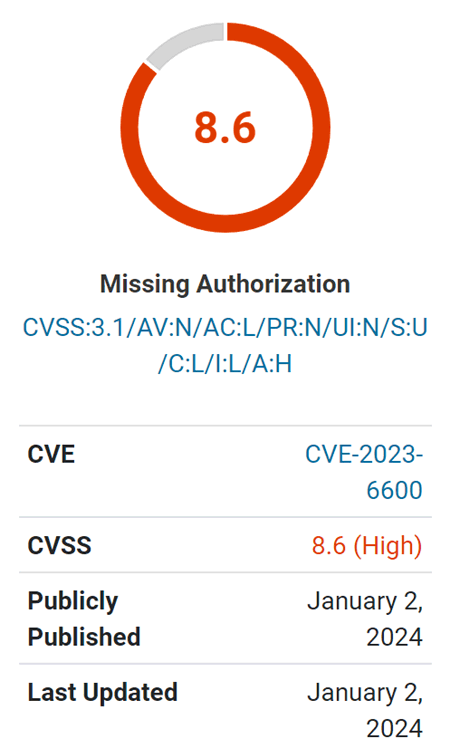
WordPress Google Fonts Plugin Vulnerability: An Overview

A vulnerability in a Google Fonts optimization plugin for WordPress has been identified, allowing attackers to delete directories and upload malicious scripts. This article provides an in-depth look at the vulnerability, its implications, and the measures taken to address it.
Introduction to the Vulnerability
A vulnerability rated as High was recently patched in a Google Fonts optimization plugin for WordPress, allowing attackers to delete entire directories and upload malicious scripts. The plugin, OMGF | GDPR/DSGVO Compliant, Faster Google Fonts. Easy., optimizes the use of Google Fonts to reduce page speed impact and is also GDPR compliant, making it valuable for users in the European Union looking to implement Google Fonts.
WordPress Google Fonts Plugin Vulnerability Affects Up To +300,000 Sites
The vulnerability is particularly concerning because it allows unauthenticated attackers. 'Unauthenticated' means that an attacker doesn’t need to be registered on the website or have any level of credentials. The vulnerability is described as enabling unauthenticated directory deletion and allowing the upload of Cross-Site Scripting (XSS) payloads. Cross-Site Scripting (XSS) is a type of attack where a malicious script is uploaded to a website server, which can then be used to remotely attack the browsers of any visitors. This can result in accessing a user’s cookies or session information, enabling the attacker to assume the privilege level of that user visiting the site.
The cause of the vulnerability, as identified by Wordfence researchers, is a lack of a capability check – a security feature that checks whether a user has access to a specific feature of a plugin, in this case, an admin-level feature.
Implications of the Vulnerability
This vulnerability poses significant implications for website security and user privacy. With the ability to delete directories and upload malicious scripts, unauthenticated attackers can compromise the integrity of websites and access sensitive user data. Cross-Site Scripting (XSS) attacks, in particular, can lead to the unauthorized access of user cookies and session information, potentially allowing attackers to assume the privilege level of unsuspecting users visiting the affected websites.
The official WordPress developer page for plugin makers emphasizes the importance of capability checking to ensure that user permissions are properly enforced. A lack of capability check, as seen in the vulnerable plugin, can lead to unauthorized modification of data and Stored Cross-Site Scripting, as identified by Wordfence researchers. Previous updates attempted to address the security gap, but version 5.7.10 is considered the most secure version of the plugin by Wordfence.
Measures Taken to Address the Vulnerability
In response to the identified vulnerability, the plugin developers have released version 5.7.10, which is deemed the most secure version of the plugin. This update addresses the unauthorized modification of data and Stored Cross-Site Scripting, providing enhanced security for websites utilizing the Google Fonts optimization plugin. Website administrators are strongly advised to update to version 5.7.10 to mitigate the risk posed by the vulnerability. Additionally, security experts recommend conducting thorough security checks and ensuring that capability checks are properly implemented in WordPress plugins to prevent similar vulnerabilities in the future.














